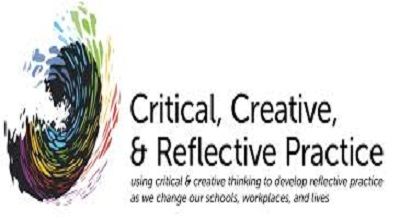Critical Thinking and Reflective Practices
Critical thinking and reflective practices are essential components of effective learning, problem-solving, and personal development. Both concepts involve the ability to analyze information, question assumptions, and engage in thoughtful self-assessment. Critical thinking and reflective practices are essential skills for individuals to develop to effectively analyze, evaluate, and synthesize information. These skills enable individuals to make informed decisions, solve problems, and adapt to changing circumstances.
Critical thinking involves the ability to analyze information objectively, identify assumptions, and evaluate the validity of arguments. It requires individuals to be open-minded, curious, and willing to challenge their own beliefs and assumptions. Reflective practices, on the other hand, involve taking the time to reflect on one’s own experiences, thoughts, and actions. This process allows individuals to gain a deeper understanding of themselves, their values, and their impact on others.
By combining critical thinking and reflective practices, individuals can develop a deeper understanding of the world around them and make more informed decisions. These skills are valuable in both personal and professional settings and can contribute to personal growth, effective leadership, and successful problem-solving.
Here’s a breakdown of each:
Critical Thinking
Definition:
- Critical thinking is the ability to evaluate information, arguments, and situations logically and systematically.
- It involves analyzing evidence, identifying biases, and making informed decisions.
Key Components:
- Analysis: Breaking down complex information into parts to understand the relationships and patterns.
- Evaluation: Assessing the credibility and validity of information and arguments.
- Inference: Drawing logical conclusions based on available evidence.
- Problem-solving: Developing and implementing effective solutions to challenges.
Importance:
- Decision Making: Enables individuals to make sound and reasoned decisions.
- Problem Solving: Facilitates effective problem-solving in various contexts.
- Learning: Enhances learning by promoting deeper understanding and retention of information.
Application:
- Academic Settings: Critical thinking is crucial in academic pursuits, from analyzing literature to solving mathematical problems.
- Workplace: Valued in professional settings for making strategic decisions and solving complex problems.
Reflective Practices
Definition:
- Reflective practices involve deliberately thinking about and analyzing one’s experiences, actions, and thoughts.
- It includes considering the impact of these experiences on personal and professional development.
Key Components:
- Self-awareness: Understanding one’s thoughts, feelings, and actions.
- Self-evaluation: Assessing the effectiveness of one’s actions and identifying areas for improvement.
- Goal setting: Establishing future objectives based on insights gained through reflection.
Importance:
- Personal Growth: Promotes personal and professional development by learning from experiences.
- Continuous Improvement: Encourages individuals to identify strengths and weaknesses and work towards improvement.
- Enhanced Learning: Helps individuals extract meaningful lessons from their experiences.
Application:
- Education: Reflection is often used in educational settings to deepen learning and improve performance.
- Professional Development: Common in various professions to enhance skills and refine practices.
- Personal Development: Useful for individuals seeking self-improvement and a better understanding of themselves.
Connection:
- Mutual Reinforcement: Critical thinking and reflective practices often complement each other. Critical thinking can be applied during the reflection process to analyze experiences and draw meaningful conclusions.
- Continuous Cycle: Both are iterative processes. Critical thinking can inform reflective practices, and insights gained through reflection can enhance critical thinking skills.
Summary
In summary, critical thinking and reflective practices are intertwined processes that contribute to effective learning, decision-making, and personal development. They are valuable skills in both academic and real-world contexts, fostering a mindset of continuous improvement and thoughtful engagement with information and experiences.
